There’s no doubt about it, routine health screening for women saves lives. Why? Health screenings detect diseases early before they become problematic for your health.
 For example, treating chronic disease risk factors, such as high blood pressure and high cholesterol, help prevent you from experiencing a heart attack or stroke in the future.
For example, treating chronic disease risk factors, such as high blood pressure and high cholesterol, help prevent you from experiencing a heart attack or stroke in the future.
Use the health screening for women checklist below to optimize health and wellness and live a long, healthy life free from disease!
#1 Body Mass Index (BMI) Screening
Body mass index (BMI) screenings help establish your risk of developing chronic diseases and their complications.
During routine wellness exams, your doctor weighs you and uses your weight and height to calculate a BMI number.
Use an online BMI calculator or the following formula to calculate BMI yourself:
- Multiply your body weight in pounds by the number 703
- Divide that number by your height in inches
- Divide by your height in inches again
An optimal BMI that keeps chronic disease risks low is between 18.5-24.9.
Your doctor checks your BMI annually or more often when necessary. If your BMI is high, weight loss helps lower chronic disease risks.
#2 Waist Circumference Screening
Waist circumference is another important health screening for women.
 The National Heart, Lung, and Blood Institute (NHLBI) notes that your risk of heart disease and type 2 diabetes increases if your waist circumference is greater than 35 inches in women and more than 40 inches in men.
The National Heart, Lung, and Blood Institute (NHLBI) notes that your risk of heart disease and type 2 diabetes increases if your waist circumference is greater than 35 inches in women and more than 40 inches in men.
You can use a tape measure to determine your waist circumference. Place it around your midsection, right above your hip bones.
Treatment for excess abdominal fat is weight loss, regular exercise, getting enough sleep, and following a healthy diet.
Try the Fit Mother 30X (FM30X) program, specifically designed for weight and fat loss in women.
Alternatively, you can sign up for the FREE 3-day jump start kit today!
#3 Hormone Screening
Hormone imbalance in women is common with age, especially right before, during, and after menopause.
 Additionally, women are 5 to 8 times more likely to develop thyroid hormone problems than men.
Additionally, women are 5 to 8 times more likely to develop thyroid hormone problems than men.
Routine hormone screenings, including estrogen, progesterone, testosterone, and thyroid hormone screenings, help restore your quality of life and prevent negative health effects associated with hormone imbalance.
Examples include:
- Weight gain and decreased metabolism
- Fatigue
- Loss of lean muscle mass
- Increases in body fat
- Accelerated hair thinning
- Bone loss
- Vaginal dryness
- Hot flashes
- Sleeping problems
- Depression, mood swings, and difficulty concentrating
- Headaches or migraines
Have your hormone levels checked at least once a year if you’re at risk of hormone imbalance, have a history of it, or experience symptoms.
If you've had thyroid problems in the past and your thyroid gland is misshaped or enlarged, your doctor might recommend imaging procedures to rule out thyroid cancer.
To balance hormone levels and restore your quality of life, your doctor might treat you with oral medications, skin patches, gels, creams, sprays, subdermal pellets, or vaginal applications.
#4 Blood Pressure Screening
Blood pressure is an important health screening for women. It is non-invasive, fast, and painless, and save lives by detecting high blood pressure before serious heart or blood vessel problems arise.
 Your doctor uses a blood pressure cuff and stethoscope or a machine to determine the pressure of blood pushing against blood vessel walls.
Your doctor uses a blood pressure cuff and stethoscope or a machine to determine the pressure of blood pushing against blood vessel walls.
They let you know if your blood pressure is within a normal, healthy range.
According to the American Heart Association, a desirable blood pressure reading is less than 120/80 mm Hg.
Have your blood pressure checked at least once every 1-2 years, or more often if you have a history high blood pressure or are at risk of developing it.
Blood pressure treatment involves making lifestyle changes, taking medications, or both.
#5 Cholesterol Screening
Like high blood pressure, high blood cholesterol increases your risk of developing a heart attack or stroke in the future.
Cholesterol health screening for women involves simple blood tests that detect levels of:
- Total cholesterol
- High-density lipoprotein cholesterol (HDL), or “good” cholesterol
- Low-density lipoprotein cholesterol (LDL), or “bad” cholesterol
- Triglycerides
Your doctor lets you know if your levels are high and how often you require cholesterol screenings based on your age and risk factors.
If your cholesterol is within a normal, healthy range you might not need another screening for five years.
Treatment for high cholesterol usually involves making lifestyle changes, taking medications or dietary supplements, or multiple treatments.
#6 Blood Sugar Screening
The Centers for Disease Control and Prevention (CDC) reports that more than 100 million adults in the United States have diabetes or prediabetes, a condition that often leads to diabetes when left untreated.
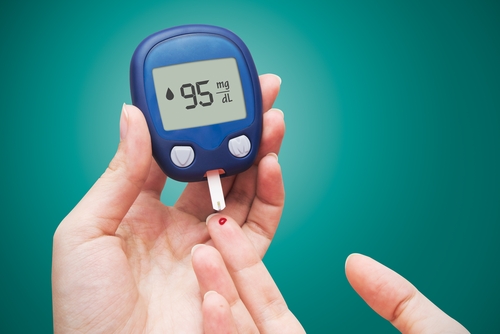 Routine blood sugar screening lets your doctor know if your levels are higher than normal. If so, you may have diabetes or pre-diabetes.
Routine blood sugar screening lets your doctor know if your levels are higher than normal. If so, you may have diabetes or pre-diabetes.
Early detection and treatment is the key to avoiding diabetes complications, such as heart disease, nerve problems, kidney damage, eye damage, dementia, and skin problems.
Blood sugar screening involves a simple blood test. Your doctor recommends it if you have diabetes risk factors or after you’ve reached a certain age.
Pre-diabetes treatment usually includes making healthy lifestyle changes, such as weight loss, healthy eating, and getting regular exercise.
If you have diabetes, your doctor recommends healthy lifestyle habits, medications, insulin injections, or combinations of these treatments.
#7 Breast Cancer Screening
Breast cancer is common, affecting 1 out of every 8 women in the United States at some point during their lifetime.
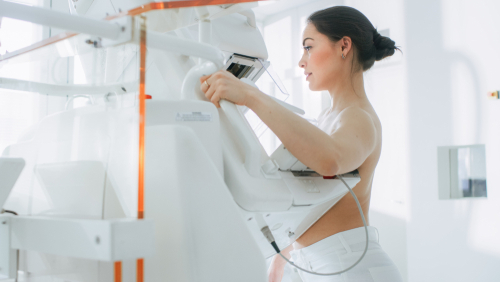 When left untreated, breast cancer can be deadly. Your doctor screens for breast cancer using a clinical breast exam during your annual wellness checkup or with a mammogram.
When left untreated, breast cancer can be deadly. Your doctor screens for breast cancer using a clinical breast exam during your annual wellness checkup or with a mammogram.
They let you know when to begin mammogram screenings, which is usually when you’re in your 40s and every 1-2 years after that.
During a clinical breast exam, your doctor examines breast tissue for lumps or other signs of breast cancer. A mammogram uses X-ray imaging to detect breast cancer.
Cancer treatment typically involves breast surgery, radiation treatment, chemotherapy, hormone therapy, targeted drug therapy (with medications), immunotherapy, or multiple treatments.
#8 Cervical Cancer/HPV Screening
Cervical cancer is highly treatable when detected early, which is why routine cervical cancer screenings are so important for women.
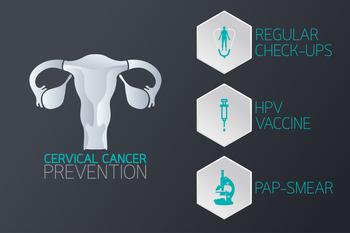 Human papillomavirus, or HPV, is a virus that causes cervical cancer, other forms of cancer, and genital warts.
Human papillomavirus, or HPV, is a virus that causes cervical cancer, other forms of cancer, and genital warts.
Your practitioner completes cervical cancer and/or HPV screening as part of a pap smear and pelvic exam.
They insert a special instrument through your vaginal canal to take a sample of cervical cells for a lab to analyze. The procedure is fast and painless.
Your doctor might recommend a pap smear every three years or more often if you’re at risk or have a history of cervical cancer.
Personalized cervical cancer treatment plans are based on how advanced the cancer is, but often involve removing cancerous tissue, radiation therapy, chemotherapy, or multiple treatments.
#9 Colon Cancer Screening
As a woman, your lifetime risk of developing colon cancer is about 1 in 24, according to the American Cancer Society.
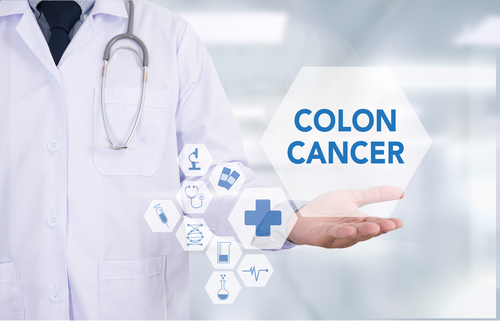 As with most types of cancer, early detection the key to making a full recovery.
As with most types of cancer, early detection the key to making a full recovery.
Most women should have colon cancer screenings beginning at age 50 and 1-10 years after that, depending on the type of screening your doctor uses.
They might recommend a colonoscopy or stool test, for example.
During a colonoscopy, your doctor offers you a sedative and inserts a scope through your colon to view the inside of it.
They may remove polyps or other suspicious-looking tissue during the procedure, which might last 30-60 minutes.
You'll be asked to take a bowel prep prior to the screening to clean out your colon.
#10 Sexually Transmitted Disease Screening
If you’re sexually active and at risk of a sexually transmitted disease (STD), your doctor might recommend STD screenings, such as gonorrhea and chlamydia tests, annually or more often in some cases.
Such screenings might involve a urine test, blood test, cervical swab, or physical examination.
STD treatment often includes taking oral medications to cure the disease or manage its symptoms.
#11 Bone Density Screening
With age and hormone fluctuations associated with menopause, your risk of developing osteoporosis increases.
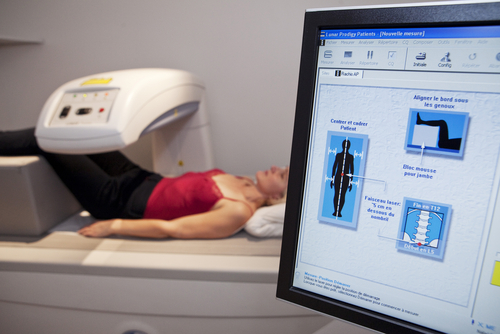 Your doctor might recommend bone density screenings beginning at age 50 if you have fractures or are at risk of osteoporosis.
Your doctor might recommend bone density screenings beginning at age 50 if you have fractures or are at risk of osteoporosis.
Done density screening involves DEXA, or dual-energy X-ray absorptiometry, scans that determine how dense your bones are or diagnoses osteoporosis.
If you have low bone density, your doctor might recommend medications and lifestyle changes as a treatment.
#12 Eye Exam
Eye exams not only help detect vision problems, but they also let your eye doctor know if you have an eye disease, such as cataracts, macular degeneration, or glaucoma.
Your doctor might recommend an eye exam at least once yearly if you have diabetes or a history of eye diseases, or every 1-4 years depending on your age and risk factors.
They complete a comprehensive eye exam and vision tests during your appointment.
Common treatments for vision or eye problems include glasses, contact lenses, eye drops, vision correction surgery, or other types of eye surgeries.
#13 Skin Cancer Screening
Skin cancer is the most common form of skin cancer in the United States, reports the CDC.
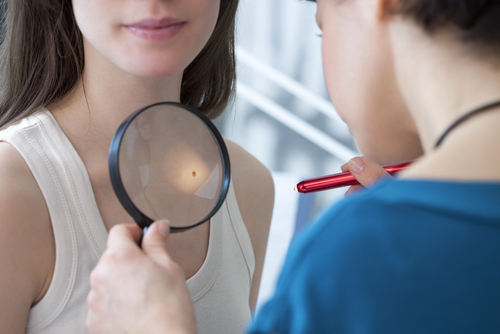 Fortunately, skin cancer is highly treatable when detected early.
Fortunately, skin cancer is highly treatable when detected early.
During an annual checkup, your doctor completes a visual skin exam or takes a biopsy of suspicious-looking tissue.
If you notice an area of your skin that changes in appearance or looks abnormal, schedule an appointment with your dermatologist to have it removed or for a biopsy.
Skin cancer treatment often includes removing the affected tissue and chemotherapy, radiation therapy, biological therapy, or targeted therapy (drug therapy).
#14 Lung Cancer Screening
If you’re a smoker or have smoked in the past, your doctor might suggest lung cancer screening when you reach age 55 using low-dose computed tomography (LDCT).
This screening tool uses X-ray technology to scan your body and take detailed pictures of your lungs.
Lung cancer treatment includes surgery, chemotherapy, radiation therapy, or drug therapy.
#15 Dental Exam
Dental exams are an important health screening for women, too. Taking care of your teeth not only keeps them white and beautiful, but it also affects your overall health and wellness.
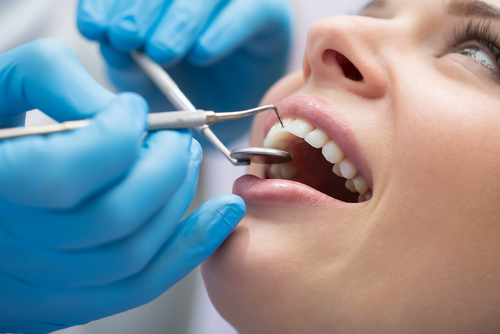 For example, poor oral health is associated with heart problems, diabetes, osteoporosis, and pneumonia, according to Mayo Clinic.
For example, poor oral health is associated with heart problems, diabetes, osteoporosis, and pneumonia, according to Mayo Clinic.
That’s why important health screening for women includes dental checkups.
Your dentist lets you know how often to schedule dental cleanings and exams, which is usually every six months or more often if you have gum disease or other dental health issues.
Your provider cleans your teeth and treats you for gum disease, cavities, or tooth infections – and cosmetic dental issues, such as staining and misalignment.
#16 Depression Screening
Believe or not, women are twice as likely to develop depression than men and more likely to attempt suicide.
 Due in part to hormone fluctuations after pregnancy, post-partum depression is common too, affecting almost 15% of women after giving birth.
Due in part to hormone fluctuations after pregnancy, post-partum depression is common too, affecting almost 15% of women after giving birth.
Depression is often a debilitating medical condition without proper treatment.
If constant sadness prevents you from enjoying life or you think about harming yourself, see a healthcare professional right away.
They ask you questions about your symptoms and examine you or use blood tests to check your hormone levels.
Treatment might include medications, support groups, counseling, transcranial magnetic stimulation (TMS), or combinations of treatments.
I’m at Risk for Chronic Diseases: What Should I Do?
If you’re at risk of or already have a chronic disease, there are several things you can do to reduce your risk or properly manage the disease and prevent complications associated with it.
Examples include:
- Get at least 30 minutes of exercise daily
- Stay activity throughout the entire day, not just during exercise
- Eat lots of fruits, vegetables, whole grains, lean protein foods, low-fat dairy foods or calcium-rich plant altervatives, and heart-healthy fats
- Avoid sugar-sweetened beverages, sweets, baked goods, refined grains, fried foods, fast foods, and other highly processed foods
- Steer clear of alcohol (or avoid it as much as you can)
- Limit your sodium intake to 1,500-2,300 milligrams per day
- Sleep at least 7 hours each night
- Avoid smoking
- Try stress-relieving strategies, such as yoga, tai chi, meditation, or massage
- Consume at least 25 grams of fiber each day
- Take dietary supplements for women
- Lose weight if you’re overweight or obese
- Try FM30X
If you struggle with weight loss, the experts at The Fit Mother Project can help!
The Fit Mother Project 30X (FM30X) program is a weight loss plan specifically designed for busy moms of all ages.
It has helped thousands of people get excess weight off and keep it off using proven strategies, fat-burning meal plans, weight loss workouts, social support, health coaching, and much more.
Try FM30X today or sign up for the FREE 3-day jump start weight loss kit to get on the road toward a healthier life free from disease and its complications.
And don't forget to schedule a routine annual health screening for women to maintain optimal health and wellness!
If you’re a busy mom who wants to finally lose weight, get healthy, and actually keep the pounds off for good, this is the simple program you’ll love sticking to…
If you’re a busy mom who wants to finally lose weight, get healthy, and actually keep the pounds off for good, this is the simple program you’ll love sticking to…
Fit Mother Project is the answer you’ve been looking for. Inside the program, you’ll receive:
- The simple & delicious Fit Mother Meal Plan with easy recipes for you and your family.
- The metabolism-boosting Fit Mother Project workouts to kickstart your metabolism for fast fat burning.
- VIP email coaching where we’ll personally walk you through the program.
Our Fit Mother 30X Program (FM30X) is the answer you’ve been looking for. Inside FM30X, you’ll receive:
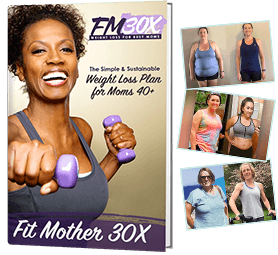
- The simple & delicious Fit Mother Meal Plan with easy recipes for you and your family.
- The metabolism-boosting Fit Mother 30X Workout (under 90 min/week) to kickstart your metabolism for fast fat burning.
- VIP email coaching where we’ll personally walk you through the program.






